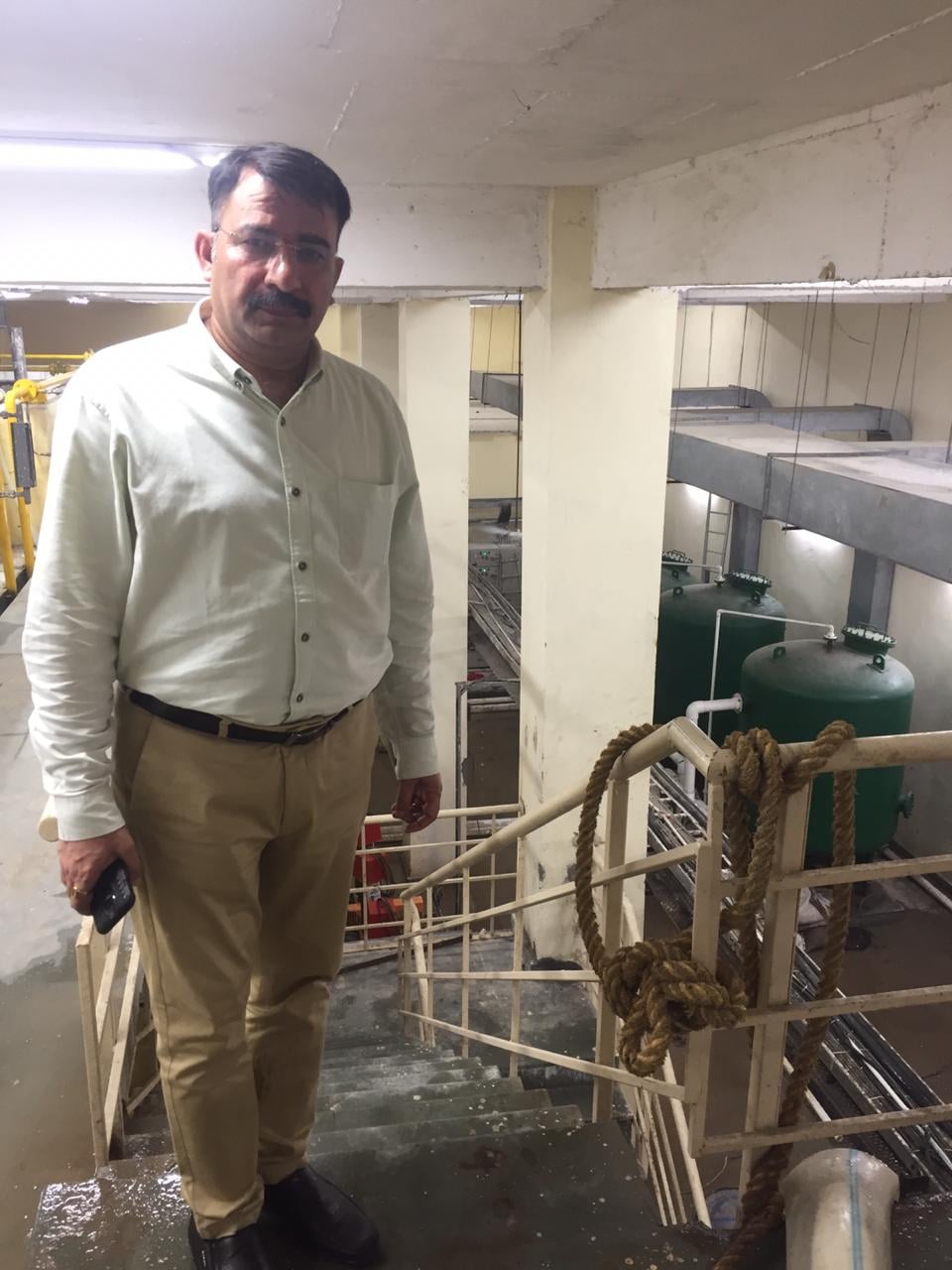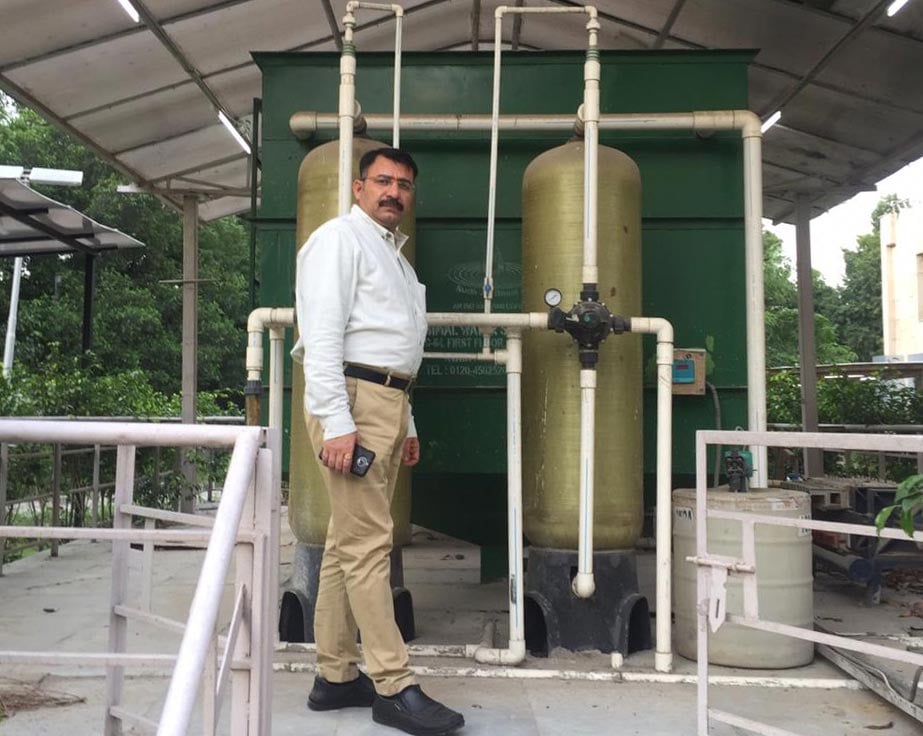Mr. Pankaj Bector is the Head of Procurement at India’s National Centre for Disease Control (NCDC), an agency under the Ministry of Health and Family Welfare that focuses on disease surveillance and the enforcement of public health regulations.
He wasn’t familiar with sustainable procurement until 2018 when he participated in a Sustainable Health in Procurement Project (SHiPP) workshop. Organised by India`s Centre for Chronic Disease Control (CCDC) and Health Care Without Harm, the workshop’s goal was to raise awareness among suppliers and procurement officers of the impact that various products have on communities and the environment.

ETP & STP Plant at NCDC.
2021 © Pankaj Bector
Mr. Pankaj actively participated in the different sessions. “It was an enriching experience during which we addressed many possible actions to introduce sustainability front and center into our operations,” he says.
At NCDC, Mr. Pankaj procures materials and supplies from the Government`s E-Marketplace (GeM) portal for eight divisions within an institutional network of more than 12 laboratories. Following the workshop, one of his first actions was to work with suppliers and health care staff to phase out PVC gloves, one of the most widely used supplies across the organisation, and worked to replace them with nitrile gloves. His efforts were successful. Currently, 100 percent of the institute’s laboratories have moved to using nitrile gloves, and the guidelines for the use of nitrile gloves are widely adopted in the divisions of GeM.

We need to encourage suppliers to reduce environmental impact throughout their supply chains, and educate users and suppliers about the environmentally responsible procurement choices.
Over time, he also tackled the widespread use of sodium hypochlorite in the laboratories and its replacement with safer alternatives.
“We started to work with suppliers to support locallyproduced goods and services. We did this not only to minimise the impact of waste management, but also to reduce the footprint of operations by sourcing products from local suppliers,” he explains.
Under Mr. Pankaj’s initiative and as a result of new knowledge gained during the workshop, NCDC further implemented changes, such as expediting the installation of effluent treatment plants and sewage treatment plants for the efficient and improved handling of liquid biomedical waste.

ETP & STP Plant at NCDC.
2021 © Pankaj Bector
But one organisation cannot achieve change without a network that supports it. “We need to encourage suppliers to reduce their environmental impact throughout their supply chains and educate users and suppliers about environmentally responsible procurement choices,” he says.
Mr. Pankaj also worked on networking and connected the SHiPP team with other procurement officers in public and private health facilities. The goal was to raise awareness about the critical need to incorporate sustainability criteria during procurement processes. “It’s necessary to assess your needs and options for products and services prior to starting the procurement process,” he adds.
With SHiPP’s technical assistance, NCDC will soon release a national guidance book which will include sustainability initiatives and targets to promote environmentally friendly procurement. Furthermore this book will also develop roadmaps to guide green practices and promote policy transformation within the Indian health care sector.
During the 2020-2021 period, NCDC procured 100,000 nitrile gloves.
The number drastically increased due to the increased use of gloves during the pandemic. In 2019, India’s National Centre for Disease Control (NCDC) only procured 12,000 latex and 31,000 nitrile gloves.
Pankaj Bector supervises the procurement
of NCDC supplies and materials for eight divisions and more than 12 laboratories.






